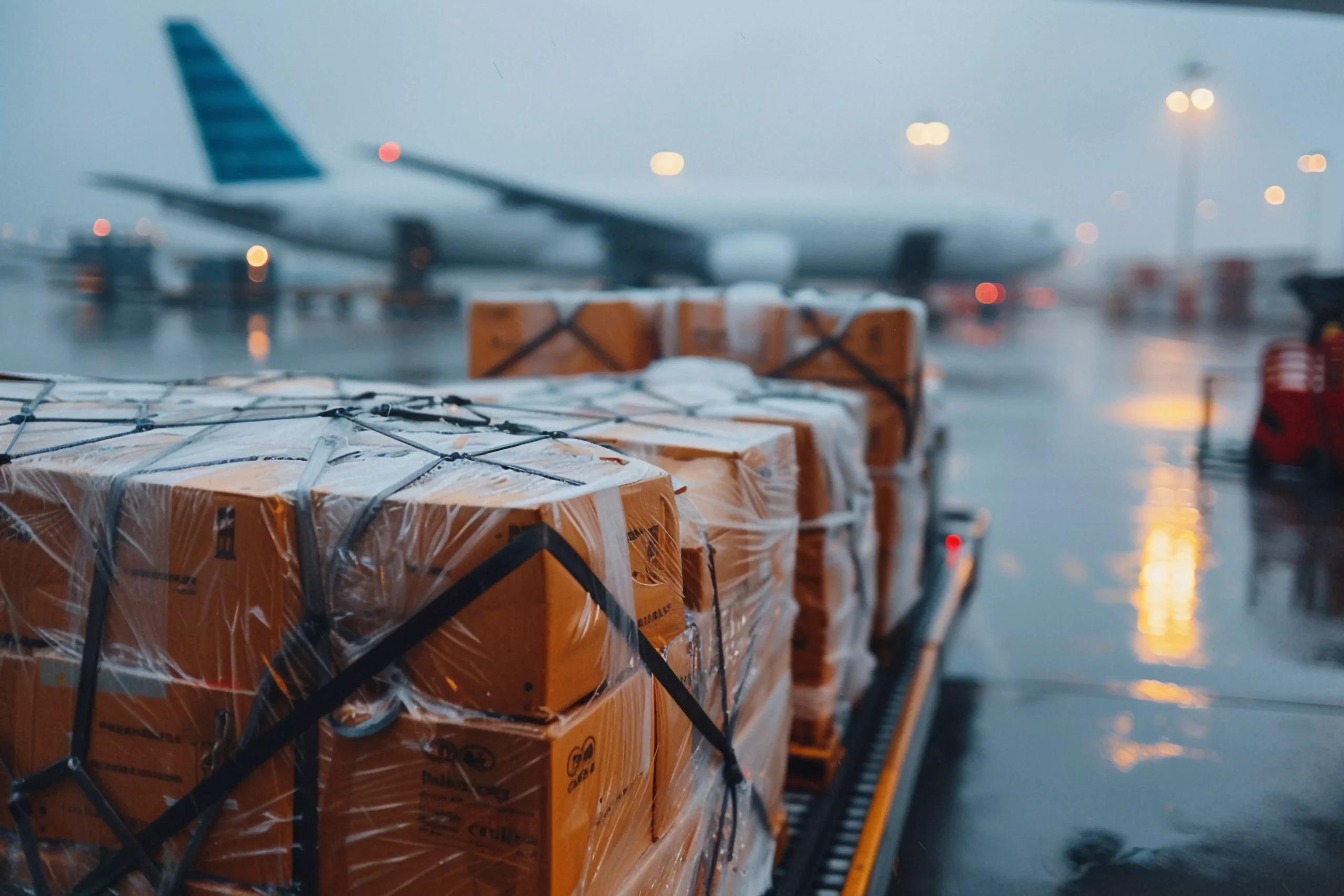Introduction
Freight forwarders play a crucial role in moving goods across the globe. They coordinate shipments, manage documentation, and ensure cargo reaches its destination safely. But with this responsibility comes risk—cargo can be damaged, lost, or delayed, and errors in handling or paperwork can lead to costly consequences.
That’s why a freight forwarders liability insurance policy is essential. This coverage protects freight forwarders and logistics providers from the financial impact of mistakes, negligence, or unforeseen events during transit. It’s a key part of managing the liability of freight forwarders in today’s fast-paced supply chain.
In this beginner’s guide, we’ll break down the importance of freight forwarders liability, who needs it, what it covers, and how it differs from cargo insurance. Whether you’re a freight handler in Singapore or a logistics partner in India, understanding freight forwarders liability insurance helps safeguard your operations and maintain peace of mind.
Key Takeaways
- Protects your business from cargo damage, mistakes, and operational errors.
- Covers the liability of the freight forwarder, not the goods themselves.
- Essential for freight forwarders, logistics providers, and businesses with high-value shipments.
- Includes coverage for cargo damage, errors, third-party liability, customs fines, and legal costs.
What Is Freight Forwarders Liability (FFL) Insurance?
A freight forwarders liability insurance policy is designed to protect freight forwarders and logistics providers from financial losses caused by errors, negligence, or unforeseen incidents during transit. Unlike standard cargo insurance, which covers the goods themselves, FFL insurance protects the liability of the freight forwarder.
Consider a real-world example: recently, a cargo ship lost 40 containers due to rough sea conditions off Australia’s east coast. In addition, more than 70 containers were damaged by heavy rolling caused by instability. The key takeaway is that even the most experienced freight forwarders cannot always prevent accidental damages during shipping.
In such scenarios, a freight forwarders liability policy can cover the financial consequences, including claims from clients and legal expenses, ensuring that your business can recover quickly without disrupting operations or reputation.
Whether you are handling shipments domestically or internationally, freight forwarders liability insurance provides essential protection against the unpredictable risks of logistics and supply chain operations.
Who Needs Freight Forwarders Liability Insurance?
Not all businesses realize the importance of freight forwarders liability insurance, but any company involved in shipping goods can benefit from it. Here’s a closer look at who should consider this coverage:
- Freight Forwarding Companies: Businesses that coordinate shipments for multiple clients carry the responsibility of ensuring cargo reaches its destination safely. Any mistakes can lead to costly claims.
- Logistics Providers and Third-Party Shipping Agents: Companies that handle transportation, warehousing, and delivery are exposed to potential errors, delays, or damages, making liability coverage crucial.
- Businesses with Frequent or High-Value Shipments: Even minor errors or damages can result in significant financial losses for high-value goods. Insurance protects against these risks.
In short, if your business manages cargo, coordinates shipments, or provides logistics services, a freight forwarders liability insurance policy is essential. It safeguards your operations, protects your reputation, and ensures that unexpected incidents don’t become costly setbacks.
Key Coverage Offered by Freight Forwarders Liability Insurance
A freight forwarders liability insurance policy offers comprehensive protection against the many risks freight forwarders face during shipping operations. Standard coverage can be tailored with extensions to suit your business needs. Here’s what a typical freight forwarder liability policy includes:
- Legal Liability for Cargo Damage Covers claims for physical loss or damage to cargo while it’s in your care. This ensures clients are reimbursed for issues caused by mishandling or transit errors.
- Errors and Omissions (E&O) Protects against administrative mistakes—such as documentation, billing, or paperwork errors—that can lead to financial losses.
- Third-Party Liability Covers property damage or bodily injury claims that may arise during freight forwarding operations.
- Customs Fines and Penalties Provides coverage for unintentional breaches of customs regulations that result in fines or penalties.
- Legal Defense Costs Covers expenses for defending both justified and unjustified claims, helping manage legal risks effectively.
- Abandoned Cargo Expenses Covers costs related to uncollected or abandoned shipments, which can otherwise disrupt cash flow.
- General Average Under maritime law, this covers shared costs when cargo is jettisoned to save the vessel—protecting both freight forwarders and their clients.
With this coverage, a freight forwarders liability insurance policy ensures your business is financially protected from common operational risks. It allows freight forwarders and logistics providers to focus on smooth shipping operations without worrying about unexpected liabilities.
FFL Insurance vs. Cargo Insurance
It’s important to understand that freight forwarders liability insurance and cargo insurance serve different purposes, even though they both relate to shipping. Knowing the difference helps businesses choose the right protection for their operations.
Feature | Freight Forwarders Liability Insurance | Cargo Insurance |
Who it protects | The freight forwarder or logistics company | The owner of the goods (shipper, importer, or consignee) |
Basis of compensation | Based on the freight forwarder’s proven negligence or error; often limited by international conventions or contract terms | Pays the cargo owner for the full commercial value of the goods, regardless of fault |
Source of coverage | Purchased by the freight forwarder to cover their liability exposure | Purchased by the cargo owner to protect their investment; can be arranged by the freight forwarder |
Coverage scope | Covers specific liabilities like errors, omissions, third-party damage, and negligence | Can be an “all-risk” policy covering natural disasters, theft, and broader perils |
In simple terms: cargo insurance protects the goods themselves, while freight forwarders liability insurance protects the freight forwarder from liability arising from mistakes, negligence, or mishandling.
Understanding this distinction ensures that both the freight forwarder and the cargo owner are adequately protected, reducing financial risks and legal exposure during shipping.
What FFL Insurance Typically Excludes
While freight forwarders liability insurance provides comprehensive protection, there are some standard exclusions you should be aware of. Understanding these helps businesses avoid surprises when filing a claim.
- Acts of Nature: Damage or loss caused by floods, earthquakes, storms, or other natural disasters.
- Intentional Acts: Losses resulting from willful misconduct or deliberate actions by the insured.
- Illegal Goods: Transportation of prohibited or illegal items is not covered.
- Inadequate Packaging: Damage caused by insufficient or improper packing of goods.
- War, Terrorism, or Strikes: Losses arising from conflicts, terrorist acts, or labor strikes.
- Inherent Vice: Natural characteristics of goods, such as wear and tear, leakage, or spoilage.
Some insurers offer optional add-ons to extend coverage for certain exclusions, but it’s essential to read the policy carefully. Knowing what is and isn’t covered allows freight forwarders to make informed decisions and consider additional protections if needed.
Factors Influencing the Cost of FFL Insurance
The cost of a freight forwarder’s liability insurance policy isn’t fixed—it varies depending on several factors that reflect your business’s risk profile. Understanding these factors can help you choose coverage that’s both effective and cost-efficient:
- Company Size: Larger businesses with higher annual revenue or turnover typically face higher premiums.
- Nature of Cargo: Fragile, high-value, or hazardous goods increase the risk and may raise the insurance cost.
- Transportation Routes: International shipments or routes through high-risk areas can affect premiums.
- Claim History: A history of previous claims can result in higher insurance costs.
- Coverage Options: Policies with higher coverage limits, lower deductibles, or additional extensions will increase the premium.
By evaluating these factors, freight forwarders and logistics providers can select a freight forwarders liability policy that balances risk protection with affordability. Proper planning ensures you’re covered without overpaying for unnecessary features.
Benefits of Freight Forwarders Liability Insurance
Investing in a freight forwarders liability insurance policy brings more than just protection for shipments—it safeguards your business from a wide range of risks associated with logistics and freight forwarding. Here’s why it’s crucial:
- Financial Protection Against Freight Forwarder Liabilities: This insurance protects your business from claims related to cargo damage, loss, or delays. It ensures you won’t have to bear the full cost of operational errors, giving you stability in unpredictable situations.
- Builds Client Confidence: Showing clients that you carry the best freight forwarders liability insurance demonstrates professionalism and reliability, strengthening trust and long-term business relationships.
- Compliance with Regulations: Freight forwarders often deal with complex international shipments. Having liability coverage ensures compliance with legal and contractual obligations, avoiding fines or penalties.
- Peace of Mind for Daily Operations: With coverage in place, freight forwarders can focus on smooth operations instead of worrying about cargo risks, documentation errors, or unforeseen incidents.
- Supports Cargo Insurance Coverage: While cargo insurance protects the goods themselves, freight forwarders liability insurance complements it by covering the liability of the freight forwarder, ensuring comprehensive risk management.
How to Choose the Right FFL Insurance Policy
Selecting the right freight forwarders liability insurance policy is crucial for protecting your business from operational risks and client claims. Here are practical steps to help freight forwarders make the best choice:
- Assess Your Business Needs: Consider the types of shipments you handle, their value, and the frequency of operations. High-value or frequent shipments may require higher coverage limits. Understanding your liability of freight forwarder obligations ensures you choose adequate protection.
- Evaluate Coverage Options: Look at what the policy includes—legal liability for cargo damage, errors and omissions, third-party liabilities, and customs fines. Make sure the freight forwarder liability policy addresses your specific risks.
- Check Exclusions and Add-Ons: Review what’s excluded in the standard policy, such as acts of nature or inadequate packaging. Optional extensions can help cover these gaps, giving you more comprehensive protection.
- Compare Providers: Research insurers offering the best freight forwarders liability insurance, considering reputation, claims settlement history, and regional coverage, especially if you operate in Southeast Asia.
- Balance Cost and Coverage: While affordability matters, don’t compromise on essential coverage. A well-chosen policy balances premium cost with protection against common freight forwarder liabilities.
Also Read: What Is Marine Cargo Insurance? A Complete Guide to Policies and Types
Frequently Asked Questions (FAQs)
Q1. Is freight forwarders liability insurance mandatory?
Ans: Not legally required, but strongly recommended to protect against financial losses from errors or cargo damage.
Q2. Does FFL insurance cover international shipments?
Ans: Yes, most policies cover cross-border shipments, including high-risk trade routes.
Q3. How is it different from cargo insurance?
Ans: Cargo insurance protects the goods; FFL insurance covers the freight forwarder’s legal liability.
Q4. How are claims handled?
Ans: Submit documents like invoices and shipping records. The insurer reviews and compensates based on policy terms.
Q5. Can it cover high-value or fragile shipments?
Ans: Yes, policies can be tailored to cover specialized, fragile, or high-value cargo.
Conclusion
Freight forwarders liability insurance is essential for managing risk and protecting logistics operations. It covers cargo damage, documentation errors, and legal liabilities—allowing freight forwarders to operate with confidence and financial security.
By understanding the importance of freight forwarders liability, assessing your business needs, and choosing the right freight forwarder liability policy, you can safeguard operations, maintain client trust, and complement your cargo insurance coverage for full protection.
Whether you’re shipping in Singapore, Malaysia, Thailand, or India, investing in a reliable freight forwarders liability insurance policy reduces financial exposure, supports business continuity, and reinforces your professionalism.
Don’t wait for a mishap—protect your business today with the best freight forwarders liability insurance tailored to your logistics needs.


